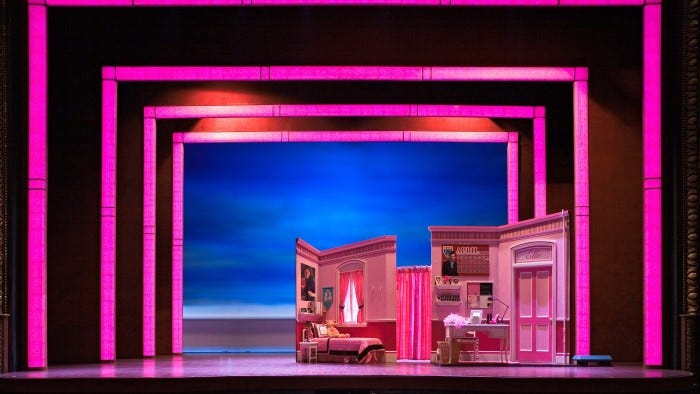Enchanting Act I
But What Abouot Act II?
It happens all the time. You go to the theater, and Act I is thrilling, especially on Broadway. When the curtain goes up, there are scrims and screens…lighting and effects so dazzling you want to applaud before the actors even come onstage. You have entered a new reality created by the playwright and the director and the set and lighting designers…and soon by the performers and choreographers and costume designers and sometimes composers and lyricists. All of these talented people worked with each other to bring you this new world, and now here it is, coming at you! How could you not exult?
Often, you’re so blown away by those initial moments that you’re primed to like whatever follows. For the first fifteen minutes or so, you go right along with the premise of the play. Ideally, your absorption continues and even increases as you start to care about the characters and want them to prevail.
By intermission, you know whether or not the play is working for you. You want it to be working, to validate your choice of the play and the cost of the ticket, and to give you an intense experience, but when the house lights go on, you’re sometimes faced with the knowledge that the play’s a clunker. And you have all of intermission to think about why.
When Act II begins, it’s not only a clunker but it’s a predictable clunker, for you know its characters and themes. The curtain goes up on a now-familiar setting, and the thrill is gone. Even in a good play, you’re not as swept away by Act II as by Act I.
I think it’s commonly acknowledged in the theater that Act II only rarely equals or surpasses Act I. Why is that? I don’t think it’s the fault of the playwright or story: I think it’s the fault of the audience, which seeks novelty. After all, Act II is not as novel as Act I. Act II is just a continuation.
Twenty and thirty years ago, when security was less stringent, many theater-lovers without money (especially out of work actors) would simply enter the theater along with the ticketholders after intermission, find empty seats, and enjoy the second half of the play. They expressed great satisfaction with the experience and I’m sure they were charmed by the set and lighting design— because for them Act II was really Act I!
If I were a playwright, I would situate Act II (or whatever occurs after intermission) in some other locale entirely, calling for a new set and new razzle-dazzle. I’d have my musical star turn turn up only in Act II, or that’s where I’d introduce a live pet or a jazz band. Anything to keep it novel within the play and to continue surprising and enchanting the audience.
What life-lessons can we learn from this, especially if we are in our own Acts II or III? (Bill McKibben calls the climate movement he’s organized for activists over 60 The Third Act.) For me, it’s important to do new things and to sometimes surprise myself. In other words, to make my own Act III not entirely predictable from Acts I and II!
After all, I used to basically eschew writing nonfiction, and here I am writing a lot of it, including these posts!
I’d love to hear about some of your surprising and pleasurable pursuits in your Third Acts!
*



Inspiring for those of us in our 50's looking for our second act. I love the idea that a change is necessary and normal, and not a reflection on Act I.
Taking up the triathlon in my mid fifties has been my third act, at least athletically. I had been a long time runner with 14 marathons under my belt. After turning 50, my body began to rebel against me doing all that mileage that was necessary to train for a marathon, and my mind began to yearn for a change. Enter the triathlon, where I learned to swim and bike. As people say nowadays, it’s been quite the journey.